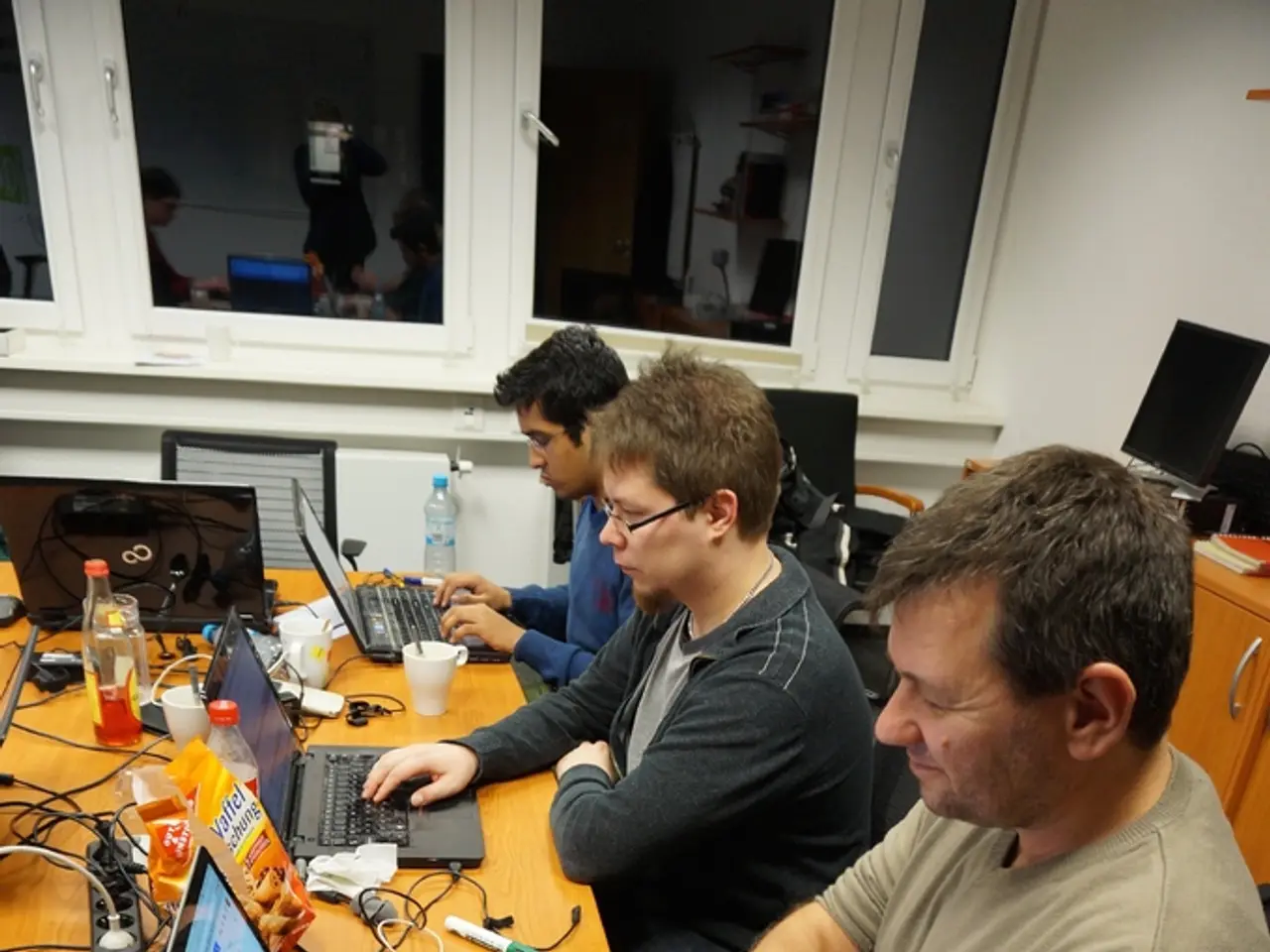Desk job burnout - Tips to boost productivity and reduce exhaustion
In today's fast-paced work environment, maintaining focus and cognitive performance can be challenging. However, new research suggests that by understanding the role of certain brain chemicals and implementing simple lifestyle changes, we can improve our mental abilities and tackle the day's challenges with ease.
One such chemical is glutamate, the brain's main excitatory neurotransmitter, essential for learning, memory, and cognition. While glutamate is vital, excessive buildup during prolonged mentally demanding work can disrupt neuronal communication and impair cognitive function, including concentration, problem-solving, and decision-making.
Cognitive processes—particularly fluid intelligence used in reasoning and problem-solving—depend on a balance between glutamate (excitatory) and GABA (inhibitory) neurotransmitter systems. Efficient cognitive performance correlates with a well-regulated ratio of glutamate to GABA, where higher working memory capacity is linked to lower GABA levels and a balanced glutamate-GABA ratio.
To maintain focus and cognitive function throughout the workday, effective strategies to balance glutamate and GABA levels include:
- Regular breaks and mental rest: Taking planned breaks throughout the workday can result in better outcomes. A 10-minute break to stretch or take a short walk can increase positivity and decrease fatigue.
- Physical exercise: Regular physical activity promotes GABAergic activity and improves neural inhibitory tone, helping balance excitation.
- Stress management: Chronic stress can disrupt neurotransmitter balance, increasing glutamate and decreasing GABA function. Effective stress management is crucial for maintaining a healthy balance.
- Adequate sleep: A good night's sleep supports neurotransmitter regulation and brain recovery.
- Dietary components: Certain nutrients, such as magnesium, zinc, and certain amino acids (e.g., glutamine and GABA supplements in some contexts), may modulate glutamate-GABA balance.
- Mindfulness meditation: Practices like mindfulness meditation have been shown to enhance GABA activity and improve cognitive control.
In addition, L-theanine, found in green tea, increases GABA levels and promotes relaxation without sedation within 30 minutes of intake. Regular intake of 200-400mg L-theanine (equivalent to 13-26 cups of tea) for 2 weeks reduces stress and has a calming effect. A high dose of L-theanine that is effective can be easily achieved through L-theanine supplementation, rather than drinking many cups of tea.
For those interested in supplementation, Brain Feed offers a L-theanine supplement providing 250mg L-theanine for £15.99, with an additional 15% off the first order using the code NEW15.
In summary, excessive glutamate buildup impairs cognitive function by disrupting excitatory-inhibitory balance in the brain. Effective focus during long work hours depends on lifestyle and behavioral strategies that promote glutamate-GABA equilibrium to support neural efficiency and mental performance. By understanding this balance and implementing simple strategies, we can improve our cognitive abilities and tackle the day's challenges with ease.
- Workplace wellness programs could emphasize the importance of maintaining a balanced glutamate-GABA ratio for cognitive functions, as demonstrated by recent research. This balance is crucial for memory, learning, and problem-solving, essential skills in a fast-paced work environment.
- Health and wellness initiatives in the workplace should explore strategies like regular breaks, physical exercise, stress management, adequate sleep, appropriate dietary components, mindfulness meditation, and L-theanine supplementation, to counteract excessive glutamate buildup and support mental health and cognitive performance throughout the workday.




